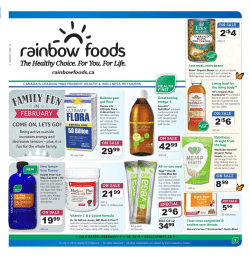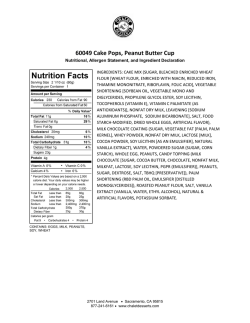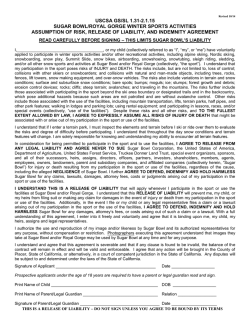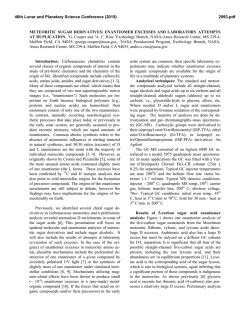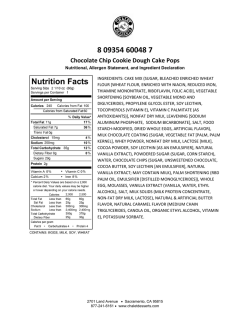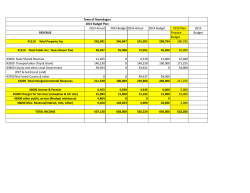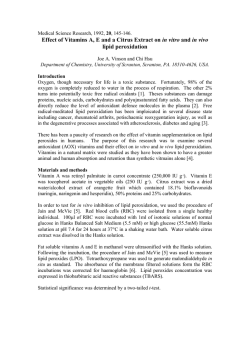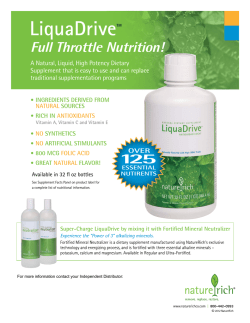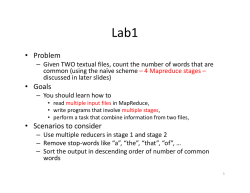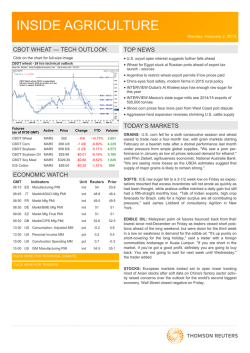
Futuros
EFFECT OF B COMPLEX VITAMINS ON PERFORMANCE OF STEERS FED SUGAR CANE J A Lora and N A MacLeod* Centro Dominicano de Investigación Pecuaria con Caña de Azúcar CEAGANA, Santo Domingo R. D. *On secondment from Rowett Research Institute Aberdeen, Scotland Summary 18 Zebu steers of 300 kg initial weight were allocated to 9 groups of 2 animals and used to compare the following treatments: control; B vitamins injected; B vitamins in the feed. Feeding was based on sugar cane and urea. The average rate of live weight gain during the 70 day trial was 500 g/d and there was no evidence of response to the vitamin treatments. Key words: Sugarcane, B vitamins, cattle Introduction Generally, ruminants do not present problems of B vitamin deficiency since these are synthesised by rumen microorganisms. However , the majority of natural feeds contain important amounts of these vitamins, and it is not known to what extent the animals depend on rumen synthesis on the one hand and dietary supply on the other. There is some evidence that on purified diets without B vitamins, in which all the nitrogen is in inorganic form, B vitamin deficiency can develop (Naga et al 1975). Sugar cane is not a balanced feed and, in particular has important deficiencies of nitrogen, lipids and phosphorus. Little is known of the vitamin composition of this plant, and it is likely that the content concentration of these nutrients may well be low. In this case, animals fed mainly on sugar cane would have to depend entirely on rumen synthesis for their B vitamin supply. The objective of the experiment discussed in this paper was to investigate response to B vitamins in cattle fed sugarcane. 91 Materials and Methods Treatment and Design: The treatments were: (A) control, (B) B vitamins injected and (C) B vitamins included in the feed. The design was random block with 3 replications. Procedure: 18 Zebu steers approximately 300 kg live weight were allocated to 9 groups of 2. During the first 35 days of the trial, 3 of the groups (one replication) were fed fresh chopped whole sugar cane supplemented with a solution of molasses/urea (200 g urea kg/mixture) at the rate of 50 g/kg of fresh cane. The second replication received whole sugar cane ensiled with urea while the third replication received sugar cane ensiled with ammonia. The level of urea and ammonia was adjusted so that these diets were isonitrogenous with the fresh cane ration. During the last 35 days all of the groups received fresh sugar cane. The rations were supplemented with 600 g/d of cotton seed meal, 50 g/d of bone meal and 50/d of salt containing trace minerals. The sugar cane (or silage) was fed on a free choice basis. The vitamin solution for injection contained (in 100 ml) B1 2 g, B2 150 mg, B6 250 mg, B12 1 mg, nicotinamide 2.5 g, calcium pantothenate 500 mg; the formula used for adding to the diet contained (in 1 kg): B1 3.85 g, B2 3.22 g, B6 1.92 g, B12 20 mg, nicotinamide 2.58 g, calcium pnatothenate 1.62 g. The vitamin solution was injected in quantities of 3 ml per animal per week. The dry supplement included in the ration was given at the rate of 5 g/animal/d, spread on the morning feed. Measurements: The animals were weighed every 7 days and feed intake recorded daily. The mean rate of live weight gain was calculated by fitting regression lines to the data for live weight and time. 92 Table 1: Animal performance on sugar cane diets supplemented with vitamins of the B complex B vitamins Control Injected Fed. SE X Live weight, kg Initial 304 275 291 Final 338 310 325 Daily gain .49 .50 .48 ±.070 Feed intake, kg/d Fresh sugar cane 18.9 18.5 18.7 ±.91 Molasses .95 .92 .93 Urea .19 .18 .19 Cotton seed meal .65 .65 .65 Bone meal .05 .05 .05 Salt .05 .05 .05 Total DM 6.14 6.50 6.04 ±.74 Consumption index1 1.92 2.07 1.98 ±.051 Conversion 2 1 kg DM/ d 100 kg LW 2 kg DM/kg weight gain 13.2 93 12.0 11.6 ±1.09 Results and Discussion Performance data are presented in table 1. There was no evidence of response to the B vitamins independently of the methods of administration. References Naga M A, Harmeyer J H , Holler H & Schaller K 1975 Suspected B vitamin deficiency in sheep on a protein-free urea-containing purified diet J Animal Sci 38: 1192-ll98 Received 1 February 1976 94
© Copyright 2026
